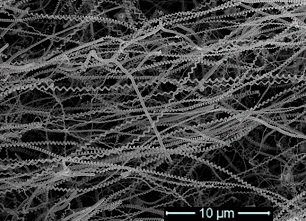Lujun Pan
Dalian University of Technology, China
Title: Carbon nanocoils: Synthesis, properties and applications
Biography
Biography: Lujun Pan
Abstract
Due to their specular 3D helical morphology, carbon nanocoils (CNCs) have excellent electromechanical properties, which show potential applications in super capacitors, field-emission devices, microwave absorption materials, near-infrared detectors, elastic composites, and strain sensors. This report focuses on the application of flexible strain sensors using CNCs as sensing medium.
The electrical conductivity of a single CNC is investigated over a wide temperature range from 4 to 300 K. It is found that the smaller the line diameter of the CNC, the bigger the size of the crystalline grain, which results in the better crystallinity and conductivity. Moreover, the temperature behavior of r(T) reveals that the intrinsic electric-transport mechanisms through a single helical CNC are mainly due to a combination conduction processes of the thermal activation, the nearest-neighbor hopping, and variable range hopping.
A straightforward method for measuring Young’s modulus of single CNCs is proposed. Acting as a 1D nano-oscillator, a CNC cantilever was stimulated to vibrate under an alternating electric field. Using a classical continuum model, a formula that accounts for the frequency response of vibration was deduced, and this formula was used to accurately determine the resonance frequency of the CNC. Young’s modulus was calculated from the resonance frequency using a theory based on material mechanics. It was found that Young’s modulus is depend on graphitization of the CNCs.
Based on the electromechanical properties, CNCs for the electrodes of super capacitors, surface enhanced Raman spectroscopy and microwave absorbers, single CNC units for near-infrared detectors, surface tension detectors, strain sensors and the CNC networks for wearable devices and micro-electro-mechanical systems have been studied.


